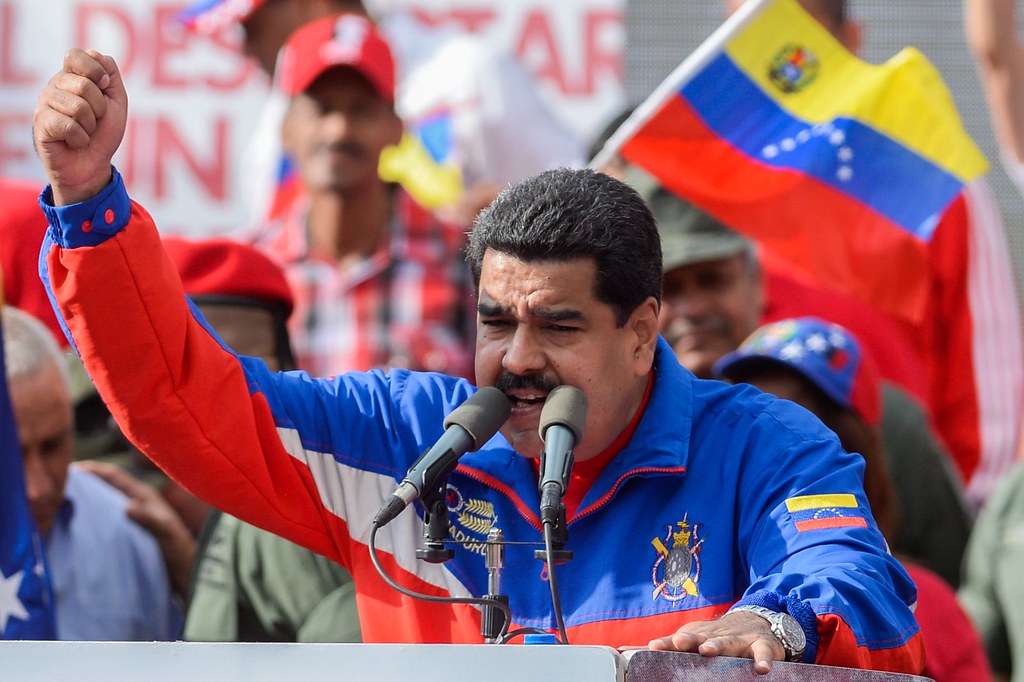3,082 government posts are being contested, including for governors, mayors and councillors, with more than 70,000 candidates from over 70 parties and political movements. About 21 million people are eligible to vote.
Here are five things you need to know about the upcoming elections in Venezuela.
1. More opposition groups will participate
Having decided to end their boycott policy, the ‘Unitary Platform’ coalition of extreme right wing groups led by the former self-declared president and interventionist Juan Guaido will now run in these elections.
This will provide a challenge to the Government as well as legitimise the electoral process, since for some time the right wing had used boycott as a means of attacking the democratic system in Venezuela, and calling it a ‘dictatorship’.
The boycott policy had been a source of disagreement on the right wing. Many of the right-wing organisations disagree on how to approach opposition to the Socialist Party (PSUV) Government and some are against foreign intervention in their affairs. Many of them have broken with the ‘leadership’ of Juan Guaido.
2. The Popular Revolutionary Alliance (APR) is campaigning as an alternative to the Government list
The APR is a left-wing coalition led by the Communist Party of Venezuela that is campaigning for a more genuine, revolutionary and anti-imperialist exit to the crisis in the country.
The Communist Party has criticised the pacts made in Mexico between the Government and the extreme right wing, in particular the Government’s acceptance of money from the IMF, which could lead to anti-worker conditions being imposed on the economy.
Moreover, Communists have criticised the failure of the Government to combat corruption and rural landlordism and protect the rights and living standards of workers and peasants.
The electoral authorities and Government and PSUV actors have blocked some of the APR’s candidacies, including one for the mayoralty of Caracas.
3. The Government has called for more balanced media coverage
Government minister Freddy Nanez has asked the press to ensure fair treatment for all political tendencies in the run-up to the elections.
Venezuela’s media is divided between private broadcasters and newspapers, more often than not loyal to the right wing, public outlets set up the Government, and other local and community outlets.
Previously the APR complained that Government channels had perpetrated a media blackout on their programme and candidates, favouring the PSUV and their supporters.
4. There will be more international observers
A wider range of electoral observers are visiting from the European Union, the United Nations, the Carter Centre and various other international organisations.
The National Electoral Commission (CNE) of Venezuela signed an accord with the Carter Centre, named after former U.S. president Jimmy Carter, to host an electoral mission from the United States.
International observers from many different organisations, especially Latin American ones, backed up the results of the last parliamentary polls in December 2020.
In 2018 and 2020, the EU and the UN had refused to send electoral missions, despite invitations from the Government.
5. The USA is waiting to see how they can take advantage of the results
In October 2021, the Biden Government extradited Venezuelan diplomat Alex Saab from Cape Verde, putting an end to the negotiations that were ongoing between the Venezuelan Government and the extreme right wing opposition led by Juan Guaido.
Saab was detained during a layover in Cape Verde on allegations of corruption. In a letter written in jail, he wrote that he was being tortured into signing his ‘voluntary’ extradition to the United States.
You can read more about the case of Alex Saab here on Venezuela Analysis.
Having provoked the Venezuelan Government into suspending the talks, which sought dialogue and some resolution of the unstable situation in Venezuela, the US Government is prolonging the suffering of the Venezuelan people.
This is another ‘coercive measure’ in a long list of them, from sanctions that damage the livelihoods of ordinary Venezuelans to the aborted paramilitary invasion in May 2020 that was defeated by soldiers and fishermen.
It remains to be seen how the political situation will progress, but it is for certain that the United States will continue to manipulate the situation and direct their pawns in the opposition, in pursuit of their imperialist agenda in the region.
The Young Communist League of Britain condemns every form of aggression or interference in the sovereign affairs of the Venezuelan people. We respect the indisputable right of the Venezuelan people to determine their own future and express our solidarity with them.
Members of the International Department of the YCL have been invited to join a group for staying up to date with the elections in Venezuela.
Stay tuned for more news from the ground as we share information from the election and plan to hear from the Young Communists of Venezuela who are leading the struggle!
Robin Talbot, is the Chair of the YCL



